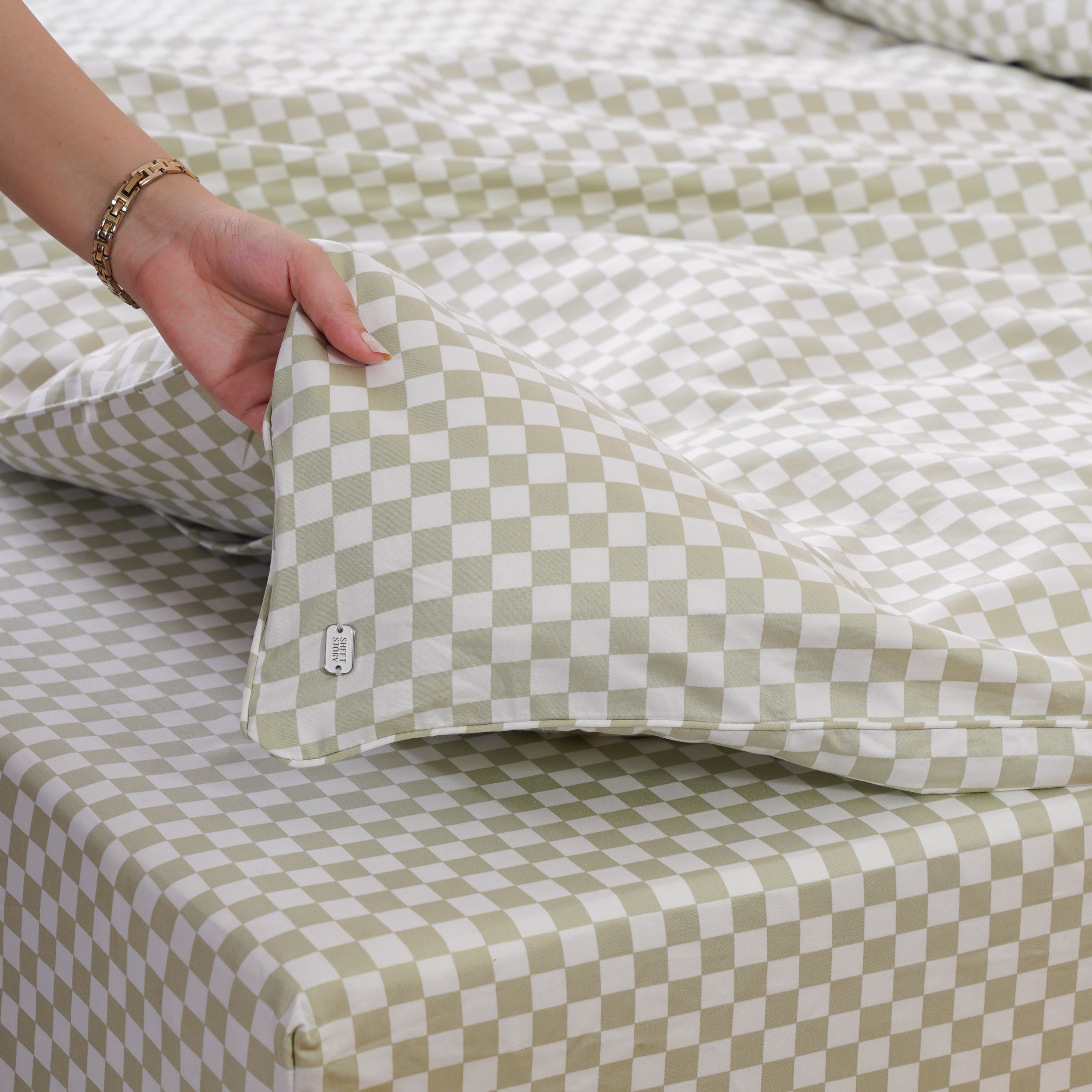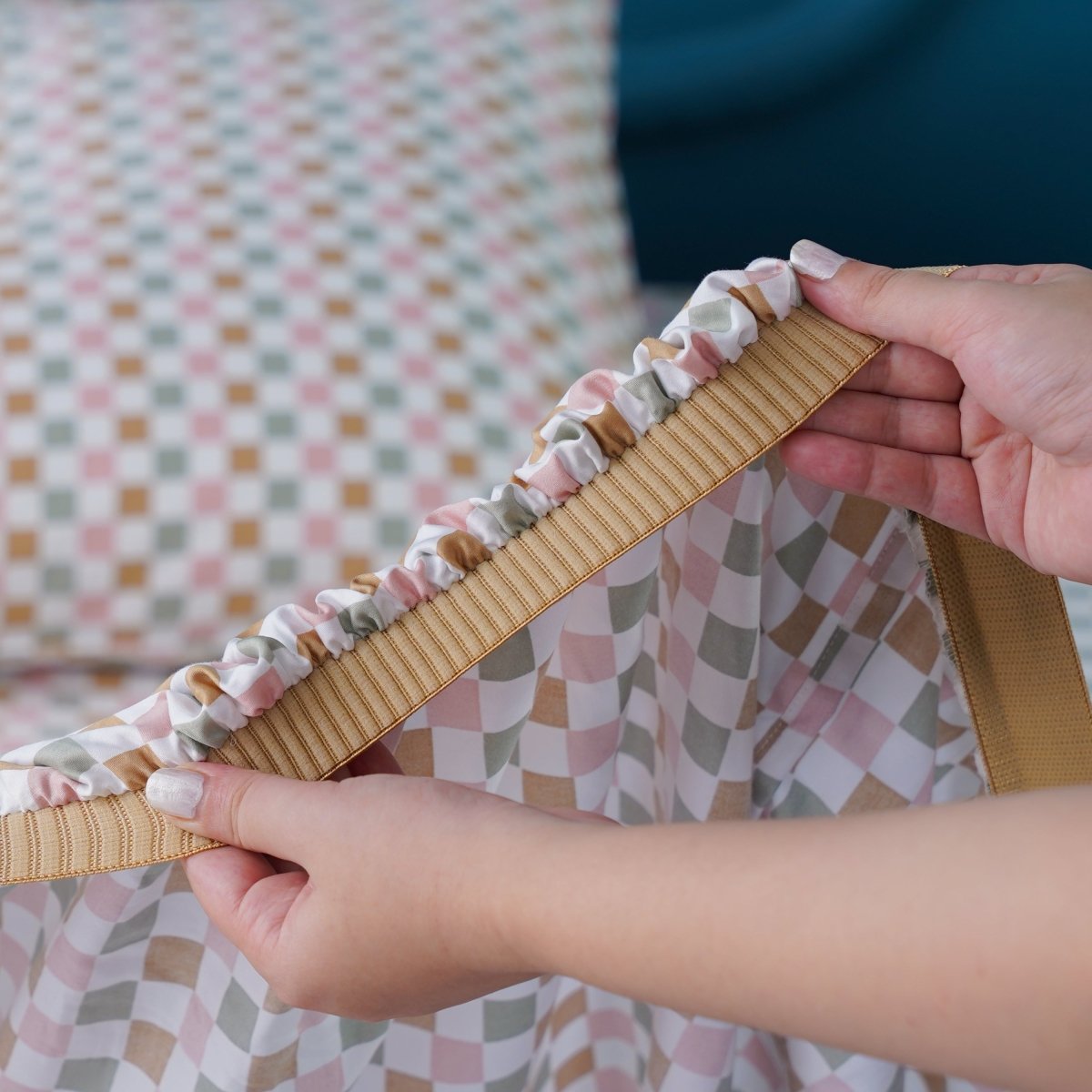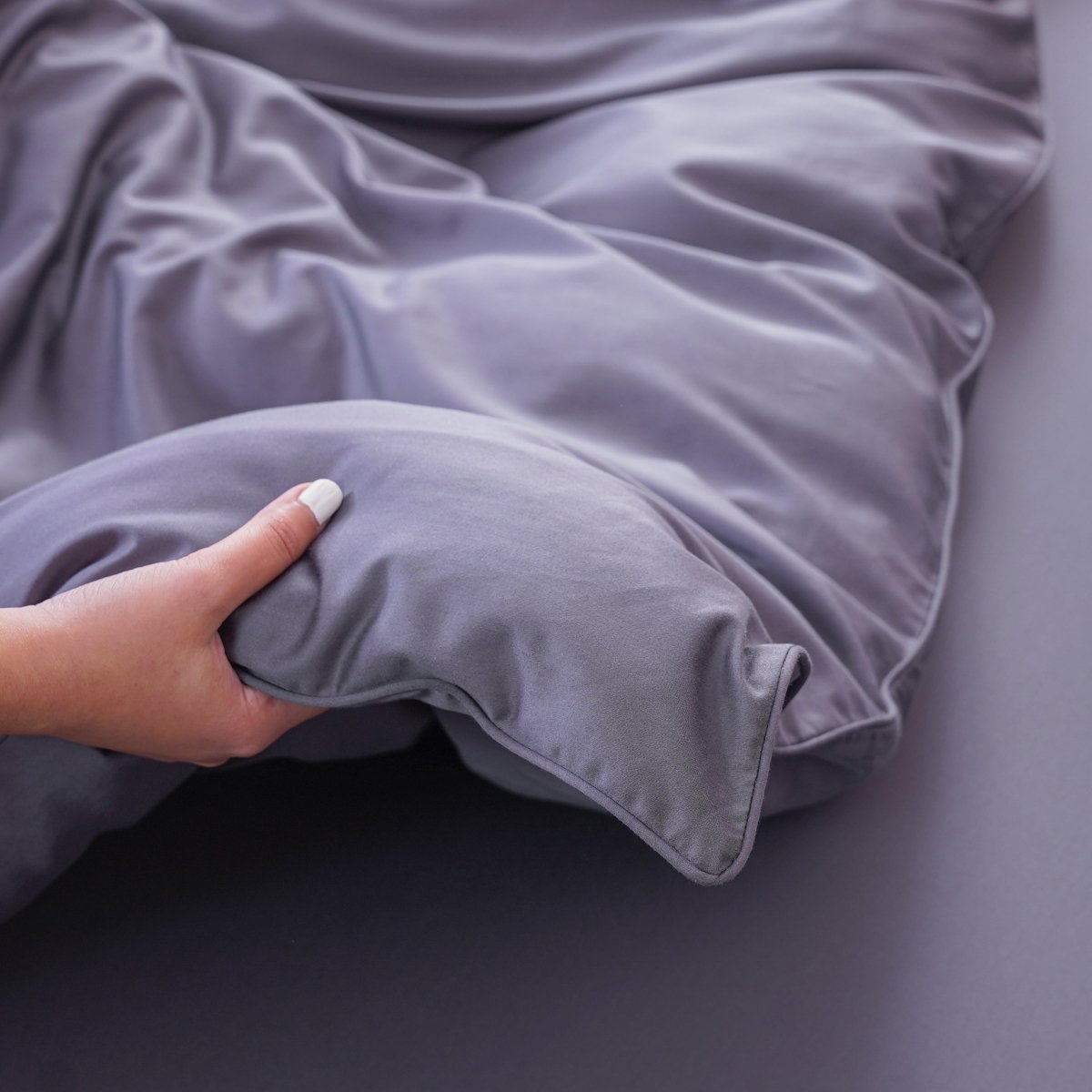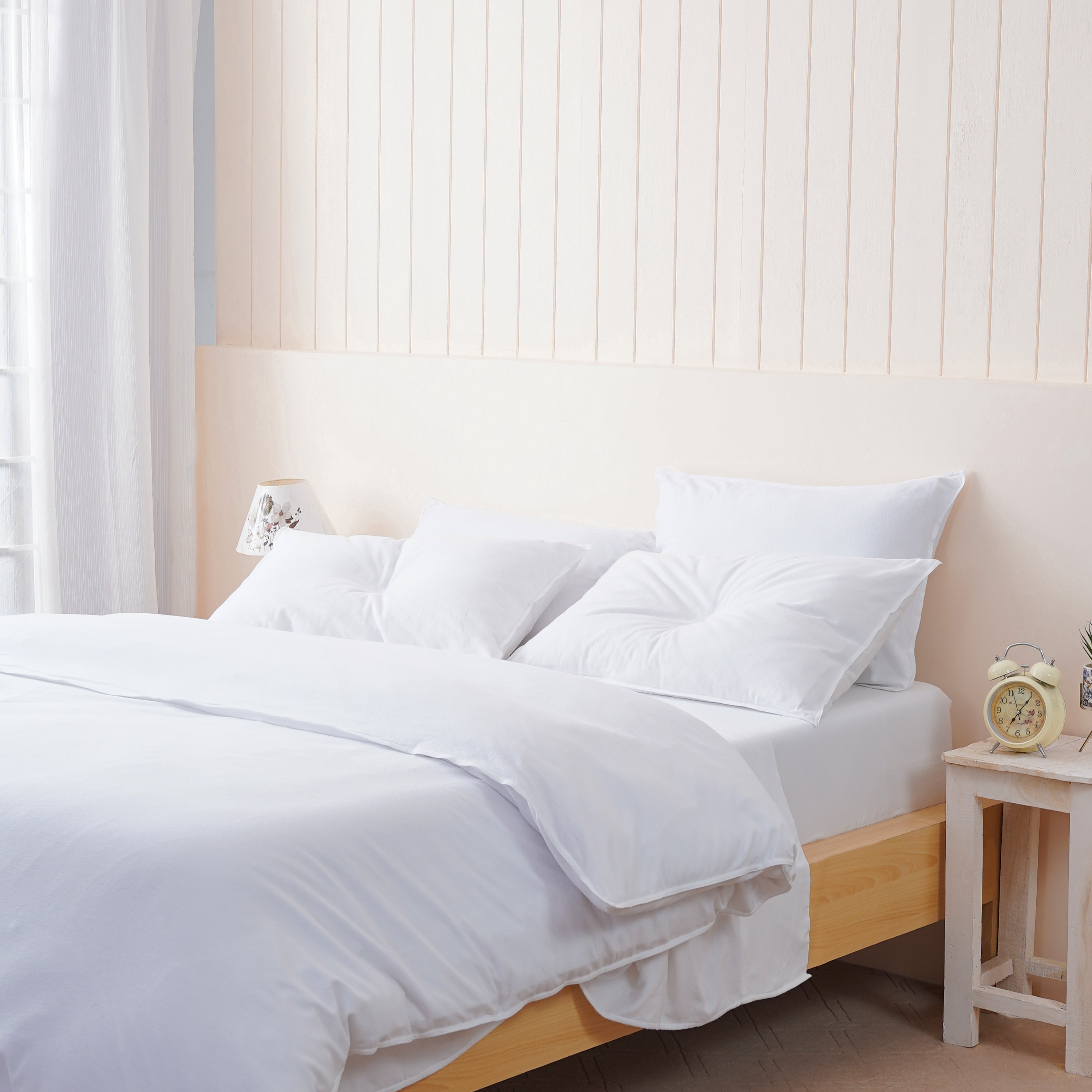We spend nearly a third of our lives in bed—so it makes sense that what we sleep on should support not only comfort but also health. Natural fibre bedding offers a wide range of benefits that go beyond aesthetics, directly influencing the quality of your sleep, your skin, and even your long-term wellbeing.
In this guide, we explore the compelling health advantages of switching to natural fibre bedding and how materials like organic cotton, linen, and bamboo can transform your sleep into a restorative, toxin-free experience.
1. What Is Natural Fibre Bedding?
Natural fibre bedding is made from materials that are derived from plants and processed without synthetic chemicals. Common examples include:
-
Organic cotton: Grown without pesticides, known for its softness and breathability.
-
Linen: Made from flax fibres, offering superior temperature regulation.
-
Bamboo: Ultra-soft, moisture-wicking, and hypoallergenic.
-
Hemp: Durable and antimicrobial, though less common.
Unlike synthetic fibres (e.g. polyester or microfiber), these materials are biodegradable, breathable, and inherently better suited for a healthy sleep environment.
2. Breathability for Improved Sleep Quality
A core benefit of natural fibre bedding is its ability to regulate body temperature. Natural fibres allow air to circulate freely and wick away moisture, keeping you cool in summer and warm in winter.
Poor sleep is often linked to overheating or excessive sweating—especially if your bedding traps heat. Bamboo and linen, in particular, excel at breathability, making them ideal for people who tend to sleep hot or suffer from night sweats.
Toxin-Free Sleep Tip: Avoid synthetic blends which can trap heat and contribute to skin irritation.
3. Hypoallergenic and Skin-Friendly
Natural fibre bedding is an excellent choice for those with sensitive skin, allergies, or respiratory issues. Organic cotton and bamboo are naturally hypoallergenic and resistant to dust mites, mould, and bacteria.
Additionally, these materials are free from harsh chemicals and dyes that can trigger skin flare-ups or allergic reactions. The result? A cleaner, more breathable sleep surface that’s gentle on your skin and lungs.
Health Benefits of Bedding Tip: Wash new bedding before use and opt for fragrance-free detergents to maintain skin-friendly performance.
4. Reduced Chemical Exposure
Conventional bedding, especially those made from synthetic fibres, is often treated with formaldehyde, flame retardants, or wrinkle-resistant finishes—all of which can off-gas harmful VOCs (volatile organic compounds).
In contrast, certified organic bedding (e.g. GOTS-certified cotton) is produced without these toxins, giving you peace of mind while you rest. Breathing clean, chemical-free air at night can contribute to better overall wellness and reduced risk of long-term health concerns.
5. Natural Antimicrobial Properties
Certain natural fibres—like bamboo and hemp—have inherent antimicrobial qualities. This means they naturally resist the growth of odour-causing bacteria and fungi, keeping your bed fresher between washes.
This not only improves hygiene but also reduces your need for chemical-based laundry treatments, supporting a more eco-friendly home routine.
6. Moisture-Wicking and Thermoregulating
Sweat, humidity, and damp environments can create a breeding ground for bacteria and allergens. Natural fibre bedding combats this by wicking moisture away from the skin and regulating temperature.
This ensures a dry, breathable sleep environment, especially important for menopausal individuals, hot sleepers, and anyone with hormonal sleep disturbances.
7. A Sustainable Choice for Your Health and the Planet
The benefits of natural fibre bedding extend beyond personal health. These materials are often produced with lower water usage, fewer pesticides, and minimal chemical processing, making them a more sustainable choice.
Choosing eco-friendly bedding also supports ethical farming and manufacturing practices that respect both human health and the environment.
8. Longevity and Performance
Natural fibre bedding tends to be more durable than synthetic alternatives. Linen, for example, becomes softer with every wash and can last for decades with proper care.
Fewer replacements mean less waste and more value for money over time. Investing in quality bedding made from natural fibres is not just a health-conscious choice—it’s a smart one for your wallet and lifestyle.
Toxin-Free Sleep Tip: Extend the life of your bedding by washing it in cool water, line-drying when possible, and rotating your sets regularly.
Final Thoughts
Switching to natural fibre bedding is a simple yet powerful way to improve your sleep quality, reduce chemical exposure, and support skin and respiratory health. Whether you’re upgrading for comfort or consciously choosing a toxin-free lifestyle, organic cotton, bamboo, and linen bedding offer proven health benefits without sacrificing luxury or style.
Transform your bed into a place of true rest—where nature and wellness meet every night.

























